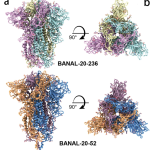
By Anders Lorenzen
Data released earlier this month by the UK government’s Department for Environment, Food and Rural Affairs (Defra) revealed what many in the UK farming and food sector feared that several bouts of extreme weather resulted in one of the worst ever arable crop harvests with the third lowest total production for wheat, barley, and oilseed rape since records began in 1984. The only outlier for the main cereal crop in the UK was oats, which saw an 8% increase.
Apart from oats, the picture makes for a depressing reading, with wheat being the largest loser and only the most widely grown cereal crop in the UK. Climate-fueled extreme weather not only resulted in yield decreases of 10% but also 11% in the areas where it was grown, which means that compared to 2023, total wheat output was down by a staggering 20%.
Barley, mainly used for animal feed and alcohol production in the UK, showed a mixed picture with an overall production output increase of 1.8%. However, it would have looked a lot worse if it had not been for a good autumn harvest, which was up by 24% compared to 2023, though the spring harvest was down by the same number by 24%. This compromise is a mixed picture as even though overall output is up, yields are slightly down due to an increase in the growing area.
Oilseed rape saw significant losses as it decreased by 32%.
Finally oat production mitigated the overall cereal production as it was increased by 19% due to increases in yield as well as how much area it was grown on.
Climate impacts contributed to overall poor cereal harvests
The poor harvests should be seen in the light of record-breaking rain in the 2023/24 winter, which climate scientists say is exacerbated by climate change. The wet winter prevented farmers from establishing and managing winter crops such as winter wheat and barley. Additionally, a wet July disrupted and delayed the harvesting of spring cereals.
The same government department had the previous day in a food security report warned that climate change poses a ‘pressing risk’ to UK food security as it drives volatility and threatens the resilience of food production in the long term.
The 2024 data shows how vulnerable the UK’s cereal grains are to climate change, impacts that will only intensify year after year. But it also shows that with over half of the UK’s arable land at 54% used for wheat production, a crop especially vulnerable to climate change, it might make sense to diversify, not only due to the consequences of such a big reliance on one crop but also some crops such as oats and barley as well as rye which production is so low it does not rank amongst the top UK cereal grains seems to adapt better than wheat to unpredictable and extreme weather events.
Discover more from A greener life, a greener world
Subscribe to get the latest posts sent to your email.
Categories: Agriculture, environment, food, food and drinks, UK







